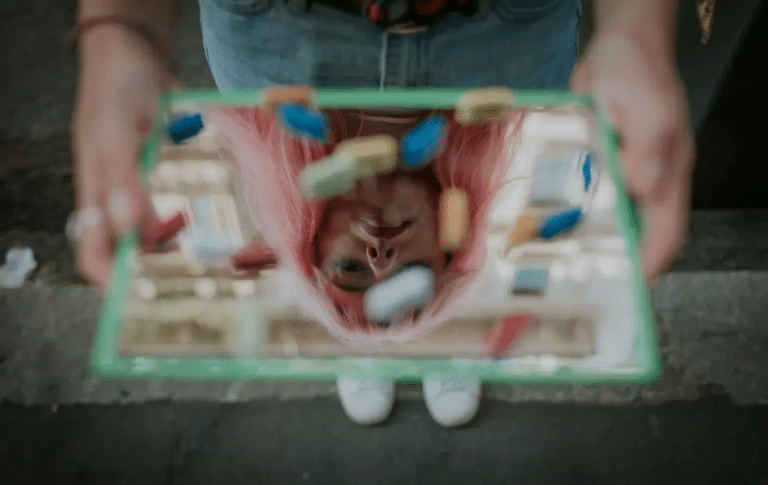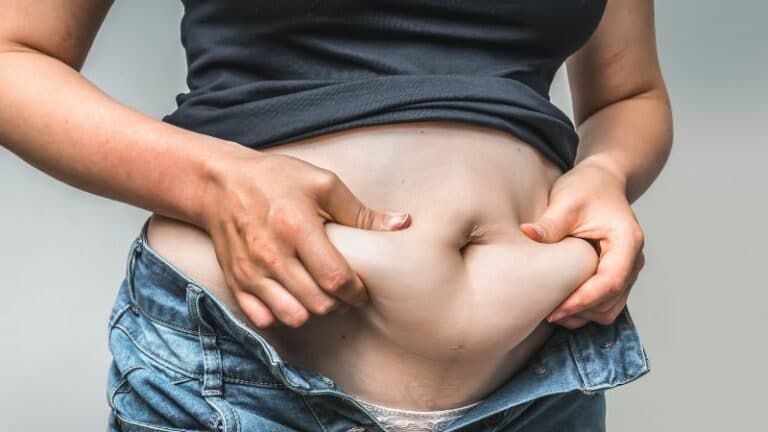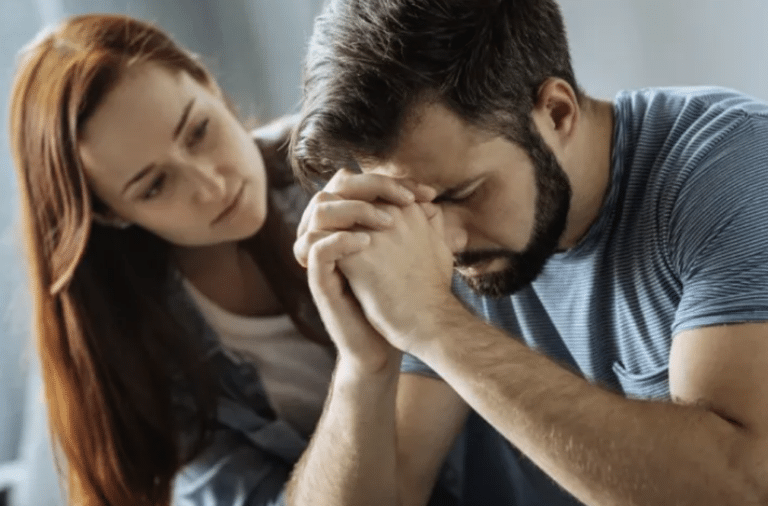Can You Get Pregnant on Your Period? (Comprehensive Guide)

Traditional contraceptive techniques are still widely used in certain parts of the world, often coupled with various myths associated with (avoiding) conception. In this guide, we’ll shed more light on the matter because it’s vital for women and men to be aware of pregnancy chances throughout a woman’s menstrual cycle.
Can You Get Pregnant on Your Period?
You can get pregnant if you have intercourse without using contraception at any point throughout your menstrual cycle. Even during or immediately after your period. Although the likelihood varies depending on the phase of the cycle, statistically, there’s always a possibility.
Surprised? Let’s talk about the medical facts about Aunt Flow’s visit to see how this happens.
Menstrual Cycle and Pregnancy
The menstrual cycle includes the time from the first day of the period to the first day of the next period. Typically, the menstrual cycle is 28 days and the period lasts about 3–7 days.
The fertility window—the time when a woman can conceive—is during ovulation. Ovulation is the event in the female body when the egg is released from one of the ovaries and usually happens in the middle of the period, about 14 days after the first day of bleeding. However, the fertility window may open at different points of the menstrual cycle.
Chances of Getting Pregnant During Your Period
The likelihood of conception during menstrual bleeding depends on the length of your menstrual cycle. For women with a 28- to 30-day cycle (or longer), it’s unusual to become pregnant just after the period.
Among women with a shorter menstrual cycle (e.g. 21–24 days), ovulation may occur early in the cycle and period. If your period is shorter, you may ovulate early in the cycle while the period is not yet ended.
Additionally, we should take into account that sperm can live within the female reproductive organs for up to 5 days. So, it’s not surprising that you can also conceive if you have unprotected sex around the end of your period and ovulate in 4 or 5 days.
Let’s stress that ovulation and intercourse are absolutely necessary for pregnancy to occur. If there is no egg release, pregnancy is impossible regardless of the menstrual cycle phase. However, the days around the expected ovulation are the riskiest, as opposed to the days during your period, when it’s least likely to conceive.
What to Know About Sex on Period and Pregnancy
Scientific studies have proven a woman might be fertile during her period, depending on her menstruation cycle length. However, the chances of becoming pregnant one to two days after the beginning of bleeding are practically nil. Nevertheless, even when a woman is still bleeding, her chances of getting pregnant grow with each passing day. And on the 13th day of the cycle, the estimated chance of conceiving after unprotected sex is 9%.
On the other hand, it’s exceedingly unlikely to conceive right before your period starts. This is because, unlike the higher survival rate of sperm in the Fallopian tubes, the egg is viable only for up to 24 hours after ovulation, usually around two weeks after the current period and before the next one. However, it’s beyond doubt that getting pregnant on your period is much harder. So, if you’re trying to conceive, bear in mind it’s not the best cycle phase to succeed at it.
Can You Get Pregnant While Spotting?
Spotting could be a sign of ovulation, which means it’s incredibly likely to get pregnant during spotting. However, it can also occur in early pregnancy, even before tests show it. So, there’s no real chance of simultaneous pregnancy, although a handful of such cases have been documented. In either case, spotting isn’t really a period, and an experienced specialist in obstetrics and gynecology can offer far more insight and help.
How to Have Safe Sex and Not Get Pregnant
It’s clear by now you shouldn’t rely on the “risky” and “safe” days of your menstrual cycle. If you don’t want to conceive, use contraception every time. This is the only highly reliable measure to avoid unwanted pregnancies and, depending on the type of contraception, to avoid sexually transmitted diseases.
The Takeaway
Although it’s not very likely to conceive during your period, there are no safe days for not getting pregnant if you practice unprotected sex. Therefore, if you’re not planning to become a parent, you should learn about the phases of your menstrual cycle and have protected sex every time. This includes using contraception, such as condoms or birth control pills.
FAQs
Do you ovulate before or after your period?
Typically, ovulation marks the middle of the menstrual cycle. Since the average length of the menstrual cycle is 28 days, ovulation is expected to occur on the 14th day. If the cycle is longer, then the time between ovulation and the next cycle will be longer. On the other hand, if the cycle is shorter, ovulation can occur 4–5 days after the end of bleeding.
However, irregular cycles can be particularly problematic. Because they vary from month to month, it’s difficult to calculate the next ovulation date. In such cases, some women use at-home ovulation tests, while others rely more on recognizing the physical symptoms of ovulation.
Can sperm survive in menstrual blood?
Yes, sperm has the ability to survive in menstrual blood. They can even remain fertile for a couple of days (up to a week) in a woman’s reproductive system, even if she’s menstruating. Therefore, the spermicide effect of menstrual blood is a myth.
Can you get pregnant while on period?
There is a chance of getting pregnant while on period, especially if your menstrual cycle is shorter than 28 days and you ovulate during the period of bleeding. In addition, the risk of getting pregnant increases when you have sex during irregular bleeding (or spotting), which is often mistaken for a period.






